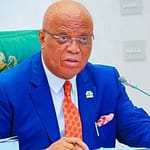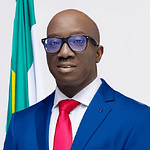The shaping of a nation’s destiny requires a chorus of voices, a blend of experience and fresh perspective. When the microphone is pointed away from the most numerous and future-bound segment of the population – the youth – the resulting sound is incomplete, arguably even discordant. This critical silence, and its damaging implications for Nigeria, forms the core of Ohakim’s recent, pointed statement. He argues unequivocally that leaving young Nigerians on the periphery of democratic ‘engineering’ is not a neutral act, but a decidedly bad one, robbing the process of essential insight and jeopardizing its legitimacy.
Choose the option that best fits the overall feel and direction of your article. Each uses creative language to introduce the subject and the speaker’s central point.
Table of Contents
- Sabotaging the Engineers Inside How Excluding Youth Undermines Nigeria’s Democratic Build
- The Steep Price Tag Ohakim’s Insight into Omission’s Economic and Social Cost
- Laying the Foundation for Inclusion Urgent Recommendations to Empower Nigeria’s Young Vanguard
- Final Thoughts

Sabotaging the Engineers Inside How Excluding Youth Undermines Nigeria’s Democratic Build
Crippling the vital infrastructure of democratic development occurs most acutely when we sideline those poised to build the future. To assemble a robust and enduring democratic edifice, every generation must bring its blueprint, its tools, and its energy to the construction site. When vibrant, digitally native, and passionately engaged young minds are denied access to the drawing board or the foundation layer, the structure inevitably suffers from critical design flaws. Their absence isn’t just a missed opportunity for fresh perspectives; it actively undermines the legitimacy and resilience of the entire project, leaving gaps that compromise stability and hinder true progress. It is akin to building a modern skycraper using only analogue tools and excluding the engineers who understand contemporary materials and complex digital systems.
The consequences of this deliberate exclusion are far-reaching and corrode the democratic architecture from within. It breeds disillusionment, fosters apathy, and pushes potential innovators and problem-solvers towards the periphery, leaving the core vulnerable to stagnation. The skills, insights, and disruptive thinking necessary to navigate 21st-century challenges – from climate change adaptation to digital governance and economic diversification – often reside most keenly within the younger demographic. Ignoring this resource is not merely inefficient; it’s a strategic error that weakens the state’s adaptive capacity and its connection to the populace it serves. We lose:
- Innovative solutions for persistent socio-economic challenges.
- Authentic representation of a significant demographic block.
- A vested interest and sense of ownership in the democratic process.
- The energy needed for continuous renewal and modernization of governance.
Embracing youth isn’t a concession; it’s a fundamental requirement for engineering a truly representative and forward-looking democracy. Ignoring the engineers within is, quite simply, self-sabotage.

The Steep Price Tag Ohakim’s Insight into Omission’s Economic and Social Cost
Beyond the rhetoric, Ohakim’s perspective on the deliberate side-lining of young Nigerians unveils a harsh fiscal reality. This calculated omission isn’t just a passive oversight; it’s an active disinheritance with a staggering balance sheet of lost potential. Imagine the vibrant energy, the tech-savvy ingenuity, the fresh perspectives locked away – an entire generation’s capacity for innovation and economic dynamism left dormant or, worse, migrating to fuel other nations’ growth. The price? A perpetual drag on productivity, a stifled entrepreneurial ecosystem, and a widening gap in global competitiveness. It’s the unseen tax paid on ignoring your most valuable asset, leading to a stunted economy struggling beneath the weight of untapped brilliance. This isn’t merely theoretical; it’s the tangible cost reflected in anaemic growth figures and underperforming sectors.
But the cost extends far beyond the economic ledger, bleeding into the very fabric of society according to Ohakim’s implied critique. When the youth are told, implicitly or explicitly, that their voices are secondary to the grand theatre of democracy, it cultivates deep-seated resentment and alienation. This marginalization erodes the social contract, fostering distrust in institutions and political processes. The vacuum left by their exclusion is often filled with apathy, cynicism, or frustration that can manifest in unpredictable ways. The nation loses invaluable social capital – the collaborative spirit, the diverse viewpoints, the collective aspiration needed for genuine national development. This leads to a fragility threatening social cohesion and the long-term health of the democratic project itself.
| Area of Cost | Impact of Youth Exclusion |
|---|---|
| Economic Innovation | Significantly Stifled |
| Entrepreneurial Spirit | Discouraged, Brain Drain |
| Social Cohesion | Eroded, Trust Deficit |
| Civic Engagement | Widespread Apathy/Disillusionment |
The consequences of this social fissure are profound, creating a cycle of disengagement that starves the political system of new ideas and energy.
- Loss of crucial diverse perspectives in policy-making.
- Increased risk of political instability due to unmet aspirations.
- Reduced social mobility and increased inequality perceptions.
- Weakening of national identity and shared future vision.
Ohakim’s warning underscores that ignoring the youth isn’t a neutral act; it’s an investment in a future defined by lost potential and deep social divisions.

Laying the Foundation for Inclusion Urgent Recommendations to Empower Nigeria’s Young Vanguard
The architect of a resilient future doesn’t build on cracked earth. Laying robust foundations for Nigerian democracy demands an urgent, deliberate pivot towards its youthful vanguard. Excluding this dynamic force isn’t merely an oversight; it’s a structural weakness, akin to leaving out the load-bearing walls from the blueprint. The vibrant energy, innovative thinking, and sheer numbers of young Nigerians represent an untapped reservoir of potential waiting to flow into the channels of governance and national development. Ignoring this segment stunts national growth, fosters disillusionment, and perpetuates cycles of exclusion. It’s time to stop patching the roof and start digging the trenches for a truly inclusive structure that can withstand any storm.
Building this enduring edifice requires more than rhetoric; it demands concrete action, immediate and sustained. Empowerment is the key, unlocked through intentional investment and the dismantling of systemic barriers. Here are urgent recommendations to elevate this critical demographic and weave them inextricably into the fabric of our democratic future:
- Cultivating Mentorship Bridges: Establishing formal, well-resourced programs connecting experienced leaders from diverse sectors directly with young aspiring participants in civic and political life.
- Revitalizing Civic Education: Overhauling school curricula to move beyond rote learning, focusing on practical engagement, digital literacy for advocacy, and understanding democratic mechanisms from the ground up.
- Creating Dedicated Youth Funds: Mandating and transparently managing specific governmental and private sector financial allocations solely for youth-led development projects, entrepreneurial ventures, and civic participation initiatives.
- Ensuring Representation and Influence: Implementing policies that guarantee youth presence on decision-making bodies at local, state, and federal levels, ensuring their perspectives genuinely inform national strategy.
Investing in youth isn’t just good policy; it’s the essential mortar for a united and prosperous Nigeria. The potential dividends are immense and transformative:
| Seed Planted | Harvest for Democracy
Final ThoughtsIn the vibrant tapestry of Nigeria’s democracy, the threads of youth are not merely decorative-they are foundational. As Ohakim poignantly reminds us, sidelining young voices is not just a disservice; it is a threat to the very essence of democratic progress. Embracing the energy, innovation, and idealism of Nigeria’s youth is not optional-it is imperative. For in their hands lies the promise of a more inclusive, dynamic, and resilient nation. To exclude them is to dim the future; to engage them is to light the path forward. The call is clear: let the youth be architects, not afterthoughts, in the democratic journey of Nigeria. |
|---|














